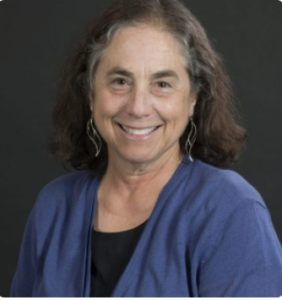Helping Families Navigate Elder Transitions
Stacey J. Drubner, JD, LICSW, MPH

EAP Ask the Expert: Barbara Moscowitz, LICSW, Founder and Associate Director of Education and Support, MGH Dementia Care Collaborative
November is National Family Caregiver Month. In recognition of this, the EAP is offering a series of posts about eldercare resources and options for help. This week, we discuss some tips for managing life transitions for seniors. The EAP is here to help all employees and immediate family household members with eldercare needs.
According to the Wall Street Journal, life expectancy increased by 63% (48 to 77 years) in the 20th Century. Future medical advances may make it common for more people to live to 100 and beyond. Even today, many have several healthy years after retirement. In light of this, we should consider rethinking our approach aging and how to better support our older relatives.
Our eldercare expert for this feature, Barbara Moscowitz, from MGH, suggests a more positive approach to aging. Getting older is about more than disease, medications, and burden. It’s a normal part of the life cycle, with goals and opportunities for enjoyment. Broadening our scope to focus on thriving, not just surviving, allows for building a fulfilling life in older age.

The key is to engage in advance planning and honest discussions about lifestyle preferences, living situation, finances, and health care. This is not always easy when you consider some of the barriers:
- The current paradigm, which considers only the disease aspects of aging
- Family dynamics
- Avoidance of difficult or awkward topics
- Time constraints & competing responsibilities
- Financial limitations
Not planning has potential consequences:
- Unmet expectations
- Losing choice & self-determination
- Low satisfaction with life
- Family stress
Barbara emphasizes that It’s OK and even helpful to acknowledge that planning for eldercare transitions is not simple, and can be challenging. Conflicts and hurdles are a normal part of the process. If your family has entered this stage, then you probably already have a sense of how difficult this can be. Barbara recommends a standard of being practical and realistic, not perfect.
Considerations for Eldercare Planning
Manage expectations
Part of what makes helping older relatives complicated is that sometimes family members want to impose their ideas about what they think is best. This is often met with resistance, avoidance, and resentment. If you let go of the responsibility of having to run your relatives’ lives, you will be less disappointed and more successful in helping.
Remind yourself that:
• Parents or older relatives are adults and should not be treated like children
• They are allowed to make their own decisions
• You should respect their autonomy
• You don’t have to agree with all their decisions, even the “bad” ones
• Like all of us, elders have different ways of navigating life and not everyone will age on the same path or with the same philosophies
• Your role may be limited – maybe just to lay out the options or to pick up the pieces when needed
Have an understanding of your family
Consider the personalities of your older relatives:
- Planners or spontaneous
- Risk-takers or more conservative
- Homebodies or travelers
What are the family dynamics:
- Cultural norms and priorities – for example, do grandparents typically live with family?
- Individual roles
- Alliances and challenging relationships
Tips for Communicating with Elders
 Start with the idea that eldercare planning is no different than planning for any other life stage or milestone, such as college, marriage, retirement or having children. Fore example, many seniors have strong opinions about where they want to live, with most expressing a desire to age in place at home. Anticipating needs will make preferences such as these more attainable.
Start with the idea that eldercare planning is no different than planning for any other life stage or milestone, such as college, marriage, retirement or having children. Fore example, many seniors have strong opinions about where they want to live, with most expressing a desire to age in place at home. Anticipating needs will make preferences such as these more attainable.
- Highlight that there are many experiences in between retirement and end of life
- Elders should utilize opportunities to make decisions about what lies between now and being unwell, also known as “healthy decision” periods
- Communicate your intention to be a partner in helping relatives live the life they want, rather than making decisions for them
- Planning doesn’t mean readiness for a transition; it is a necessary step to achieve awareness and to have options available when/if needed
- Tie planning to preserving ability to follow their path of choice
- It is easier to plan when not in the midst of a crisis
- Engage the help of PCPs, other clinical professionals, clergy & trusted friends
– Sometimes relatives are more receptive to input from outside the family - Suggest that elders check in with friends (who may be at the same life stage) to learn about what steps they are taking to live a fulfilling life
- It’s OK to communicate when you are concerned or worried
- If parents do not want to engage, accept their decision, and provide support when needed
- Try not to personalize or view resistance as an insult. Typically, this is related to a desire to maintain autonomy or reluctance to address aging and all it represents
Do your homework on Resources, Systems and Processes
As discussed, you may or may not be able to get your older relatives to see things the way you do. For some families, this can be a roadblock and paralyze all eldercare planning. “The best offense is a good defense.” At the very least, Barbara strongly recommends educating yourself on all things eldercare. Learn the “lay of the land” and know the options, tools, and resources in advance.
This puts you in the best position to build a framework to help your loved ones and to be prepared when a need arises. You can do an approximate projection of what the future might look like and fill in the details when you have them. Of course, you cannot predict everything. The goal is to be flexible but arm yourself with enough knowledge, so you don’t have to start from scratch in the middle of a crisis. This will save time, minimize stress, and allow for faster resolution of issues.
The EAP offers a full range of Eldercare Resources on the website. Here are a few you might find helpful:
• Support for Family Caregivers
• Understanding care in Hospitals and Rehab
• Resources on Common Medical Conditions in the Elderly
Minimizing Stress between Family Caregivers
It’s helpful to remember that family dynamics are often magnified, not resolved during stressful situations. Managing expectations can go a long way.
Engage your older relative in the process in order to minimize conflict
- Ask them to take part in assigning responsibilities
- Have them choose a Healthcare Proxy or Power of Attorney
Meet with all potential family helpers and keep the lines of communication opened
- Discussions are useful to share information and determine who can contribute.
- Different family members may have a pulse on areas such as social, medical, or financial
- Be realistic and honest about your own ability to help
- Don’t expect that everyone will have the same capacity or desire to provide assistance
- Avoid establishing competing alliances
- Utilize a mediator, care manager or other community professional to help navigate conflicts or get objective input
Fill in the gaps after family capacity to help is exhausted or not available
- Hire help (aides, care managers) as finances allow
- Use benefit-covered or State affiliated services such as:
Aging Service Access Points (ASAPS), – private, non-profit agencies which provide elder services and programs
Visiting Nurse Associations – provide home healthcare & hospice services through a network of nurses, therapists, social workers - Engage community systems such as volunteers or religious organizations
When should Families Intervene, even if they cannot Negotiate with Older Relatives?
It is important to know the line between bad judgment and competency to care for themselves. These circumstances relate to cognitive impairment (including dementia) or frailty, when safety and well-being are compromised. You should trust your knowledge of your relative when determining if something seems off. If necessary, consult an expert. Below is some guidance to use as a barometer:
- How do Parents respond when you ask them what they will do if there is a fire in the house or a stranger at the front door?
- Are there signs of appliances being left on?
- Are they paying their bills?
- Are they taking their medications properly?
- Are there signs of lack of attention to medical needs
– Look for bruises, swollen ankles, breathing distress - Are there signs of a decline or neglect of personal hygiene or the home environment?
- Have they been repeated victims of Fraud or Scams?
The Massachusetts General Hospital Dementia Care Collaborative is committed to improving the experience of patients and families living with Alzheimer’s disease and related dementias by changing the way our healthcare system understands and treats these individuals. The program is a resource for patients, families, and clinicians and provides education, clinical co-management services, and emotional and social support.
Other Family Caregivers Month EAP Features
- Caring for the Family Caregiver: Recognizing & Addressing Caregiver Stress
- Preventing Outpatient Falls in the Elderly
- Helping Older Relatives with Managing their Healthcare and Financial Affairs
Help from the EAP
The EAP is here to help all employees and immediate family household members with eldercare needs. The Mass General Brigham EAP is available to help with concerns about yourself or someone you care about. The program offers free and confidential services for employees and immediate household family members. EAP records are separate from medical and HR records. Contact the EAP at 866-724-4327, or request an appointment via our online form for confidential assistance.







